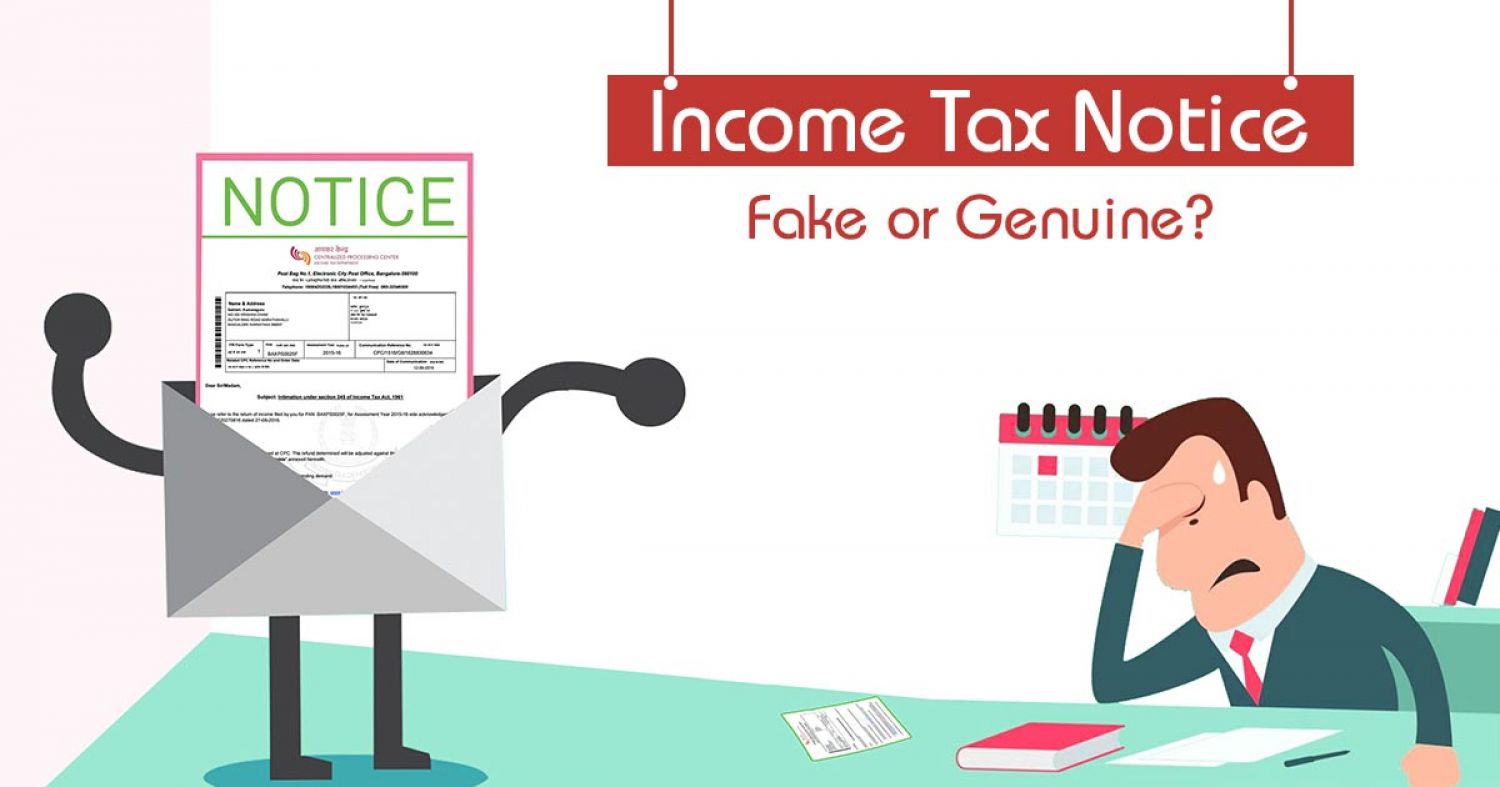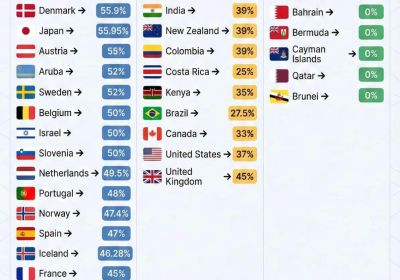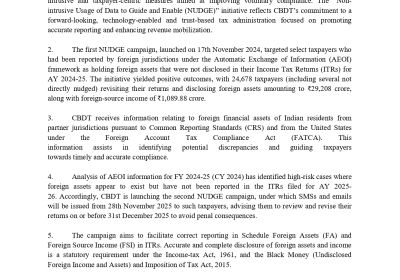Table of Contents

Income Tax Notices in India - Meaning & Types
An income tax notice is a written letter from the Income Tax Department to a taxpayer informing him of a problem with his tax account. The notification might be given for a variety of reasons, including filing or not submitting his or her income tax return, issuing an assessment, or requesting specific information. When the Income Tax Department sends a notice, the taxpayer must respond to the notification and work with the tax authorities to resolve the issue.
Types of Income Tax Notices:
Depending on the reason for the notice, the income tax department sends different types of notices to taxpayers. The following are the notices:
· Section 142(1):
In two cases, the assessing officer issues a notice under section 142 (1). Firstly, the officer may request further information and documents related to your tax filings. Second, if the officer requests that the return be filed despite the fact that it has not yet been filed. If you do not answer the Section 142(1) notification, you could face a fine of INR 10,000, a year in prison, or both if you do not comply.
· Section 139(9):
If the AO feels you have filed a defective income tax return, he will notify you under this provision. Missing information, using the incorrect ITR form, submitting an incomplete return, and so on are all examples of errors. The officer also would make references out and advise a solution to the defect in the tax return. You have a 15-day period to respond to the notice. Your ITR would be rejected if you did not respond.
· Section 148:
When the assessing officer (AO) has reason to believe that a taxpayer has submitted his ITR on a lesser income or has not submitted when required by law, this notice is sent. The amount and type of revenue escaped determine the time limit for sending the notice under this provision.
· Section 156:
A notice under Section 156 would be issued if there is any type of demand, such as a penalty, fine, tax, or any other amount that the taxpayer is required to pay to the income tax department. The taxpayer must pay the outstanding amount within 30 days of getting the notification, which is also known as a notice of demand.
· Section 143(1):
The tax department processes your ITRs online after you file and verify them. Following this initial assessment, the tax department notifies all taxpayers in accordance with Section 143(1). It comprises information on an additional tax liability or refund, as well as whether the loss amount stated in the return should be increased or decreased, and whether the return has been submitted correctly.
· Section 143(2) for scrutiny assessment u/s 143(3)
If the tax department chooses to examine the taxpayer's ITR then a Notice u/s 143(2) will be issued to the taxpayer. This notice is sent by the assessing officer within 6 months of the end of the financial year in which the return is filed. Once the taxpayer receives the notice, the taxpayer must respond to the income tax department questionnaire and present all other requested documents.
· Section 131
The assessing officer can issue a notice under this section if he believes that the taxpayer is hiding his income or a portion of it. The notice can be used to inquire about the taxpayer's accounts books and to examine the income of the taxpayer.
· Section 245
The assessing officer (AO) shall be entitled to this notice u/245 of the Income Tax Act if it is believed that, in the previous FY where you had a tax liability and in order to pay the current FY's tax refund, you could not have paid the tax liability. You must respond within 30 days, or the AO will consider your failure to respond as consent to adjust the tax refund with previous tax liabilities and issue your refunds after such adjustments.
Income Notice U/s 133(6) authority to conduct investigations
- According to the Section 133(6) of the Income Tax Act provides the assessing officers the authority to conduct investigations. Demanding data that is relevant to any Income Tax Act proceedings is element of the investigative power. As parts of "Operation Clean Money," the investigation power now includes the ability to make enquiries about and confirm cash payments.
- In circumstances when there are no outstanding income tax or other obligations, the assessing authorities are empowered to issue a notice for general information for the purpose of inquiry. This post explains Section 133(6) of the Income Tax Act.
Frequently Asked Question on Income Tax Notices
Q.: What exactly is an income-tax notice?
The Income-tax Department processes an individual's / assessee's (also known as a taxpayer's) income-tax return when it is filed. If a mistake, inaccuracy, or inconsistency is discovered in the income-tax return filed, the Assessee is notified by way of an income-tax notice. The Income-tax Department issues a variety of income-tax notices, which you can read about in the question below.
Q.: How Should You Handle Income Tax Notices from the IT Department?
A brief overview of IT Notices and the reasons for issuing them.
The most essential thing to keep in mind when receiving an IT notification is that almost everything is now linked to Aadhaar, PAN, Bank Accounts, Digital Wallets, and Mobile Numbers. The Income Tax Department is evolving into a highly developed, well-connected tax system on a daily basis.
Typical Reasons for Receiving an IT Notice
-
A quick reminder to file your tax returns
-
Randomly scrutinize
-
Inconsistency in your tax returns
-
Errors in TDS Amount Deducted
-
Errors in TDS Amount Deducted
-
Requesting documentation proof
-
Transactions of high value that do not match income.
-
Transfer of property on behalf of the wife or children
-
High Gift Transaction Number
-
Non-payment of the entire tax amount before the due date
-
Return of income tax not filed or filed after the date of the due date
-
Asset not divulged.
-
Foreign income not disclosed
-
Family Member Investments
Q.: What are the different forms of tax notices?
Under the Income-tax Act of 1961, the Income-tax Department publishes notices for several purposes. The following are some of them:
1. Income tax Intimate Section 143(1) – Intimate submitted by the revenue-tax department following the return filed and processed by the taxpayer by the CPC.
2. Announcement of Incomes in accordance with section 143(1)(a) – A Request for Answers shall be issued if the Income Tax Return filed contains certain errors/inconsistencies.
3. Notice of income-tax in accordance with section 139(9) – This Notice of Income-tax shall be issued if the return on income-tax is filed. For instance, before paying the self-assessment tax, the income-tax return is filed.
4. Rectification under section 154 – If the taxpayer has filed his income tax return and there is an error, such as no TDS credit, a rectification under section 154 must be filed.
5. Income-tax notice under section 245 – This notice is sent to inform you of the adjustment of your income-tax refund against your income-tax claim.
6. Income-tax notice under section 142(1) – This income-tax notice is sent to the taxpayer in order to obtain specific documents and information.
7. Income-tax notice under section 148 – When the Assessing Officer has reasonable grounds to think that the taxpayer's income has escaped assessment, the Assessing Officer will issue an Income-tax notice.
8. Income-tax notice under section 156 – After the income-tax assessment is completed and the order is issued, this income-tax notice is issued for payment of the demand.
9. Contribution Notice pursuant to Article 143(2) – When a notice is published in respect of income-tax in accordance with Section 143(2), the Assessing Officer has chosen the Revenue-tax Return.
Q.: What is the purpose of an income-tax notice?
For the following reasons, an income-tax notification may be issued:
- No income tax returns have been filed.
2. Errors or discrepancies in the income tax return you filed.
3. A mismatch between the TDS values in your Income-tax return and what is accessible in the Income-tax department's Form 26AS records.
4. The Assessee, who is knowledgeable about income tax and is absent in the assessee's return on income tax, shall carry out any financial transaction.
5. The Assessing Officer requires specific documentation and information from the taxpayer. He issues an income-tax notice for this purpose, requesting such documents and information.
6. To conduct an audit pursuant to section 143(1) of the Income Tax Act.
7. For any other reason that the Assessing Officer deems appropriate.
Q.: How do I find out if an income-tax notice has been issued to me or what the status of the notice is?
Here's how to find out if you've gotten an income-tax notice or intimation in a few easy steps:
- Sign-up / Login at https://portal.incometaxindefiling.gov.in
- From the top menu, go to "My Account" and select from the download the option "View e-filed returns/forms."
- For the relevant evaluation year click "Ack. No."
- Your return is subject to correction if you have any of the following messages. B. the ITR filed is defective/incomplete. A. In the meantime, U/S 143(1)(a) B. C. Completed and determined request ITR processing.
Q.: Can I get more than an Assessment Year Income Tax Notice?
Yes, for the same valuation year, you can receive more than one revenue tax notice. For instance, the intimation 143(1) on your income tax has been requested and you filed a correction for it. If you do, however, refuse to do so, you will receive a second Revenue Tax Advisory/Order 154, which requires further clarification from the income tax department.
Q.: If I don't know an income tax notice, what could happen?
We recommend that you should not neglect any income-tax notices. Ignoring any notices of income tax may result in the 1961 Income Tax Act penalty and prosecution.
Q.: What are my chances of receiving a notification from the Income Tax Department?
The Income Tax Department sends notices to less than 1% of all taxpayers. You are notified of income tax if:
- You must file your return on income tax and have not submitted the same return.
- There is an error in your return 3. Wrong TDS credit is taken the return you have filed.
- The Assessing Officer shall request any documents or details.
- Any other situation considered fit by the evaluating officer
Q.: How long is the notice of income tax received from me normally taken?
No specific deadline for the resolution of any income tax notice issued is established by the income tax department. It would be fully dependent on different circumstances such as the Income Tax Department processing time, the assesses response time, and so on.
Q.: I am currently living outside of India; how should I approach the Income-tax Department in this situation?
Filing a rectification of an income-tax return and responding to an income-tax notification are now both done online and can be done from anywhere in the world. If you are unable to appear in person at an Income-tax office, you can appoint someone to act as your representative in India and ask that person to appear before the assessing officer with all of your required documentation.
Have you received any tax notices? Trust us to assist you in responding to the IT Department.
- Rajput Jain & Associates is well-versed in engaging with the Income Tax Department. By assisting you in responding properly, our professionals can also help you avoid legal repercussions.
















